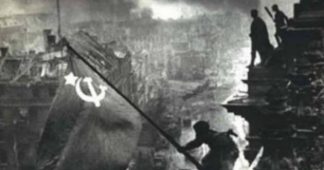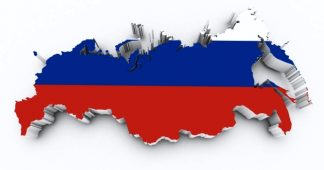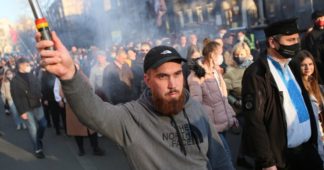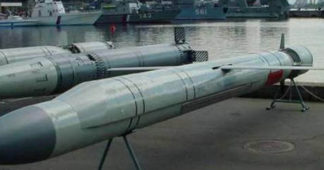By Florin E. Platon
Ukraine is not a war that is about to end, but a war just about to begin!
Propaganda is entirely political and does not change the events on the ground. Its purpose is to prevent the understanding of the events, promoting conclusions instead of explanations. It proclaims singular ‘truths’, instead of multiple possibilities. Conformity, instead of questioning. This article is meant to only propose possible variables, and invite to further prospects on the future of the Ukrainian crisis.
…
“In the first phase the enemy, collecting their best forces (…) will strike (…) I consider it inadvisable for our forces to go over to an offensive in the near future in order to forestall the enemy. It would be better to make the enemy exhaust himself against our defences, and knock out his tanks and then, bringing up fresh reserves, to go over to the general offensive which would finally finish off his force”
(Georgiy Zhukov – 1943’ April 8th)
The victories of the Russian army in the Second World War, which are rightfully feeding their pride today, have subjects of a different role to the other end of these shinning stories – the defeated. What should make us believe that for those reiterating the old victories, there are not also those that remember the defeats from the very same stories?
Just a few years ago, the Western political establishment equated Hitler’s Nazism with Stalin’s USSR. The former ally that defeated the Nazism in the first place, suddenly became from ally, the villain, with just a brush of rewriting history. It only proves that the alliance against Hitler was mere conjectural, and as such also explains the hesitations and the collusion of Western powers and the United States in stopping Hitler in the beginning of the war. It is no surprise then, to see the same Western countries supporting fascism and militarisation in the proximity of Russia, from the Baltic States, to Ukraine and Romania.
Ukraine crisis has a strange similarity with the Second World War Battle of Kursk, the very battle that broke the spine of the German army, and was the last major operation Germany would be able to attempt in that war. I think history has its own irony of repetition, since human nature is too poor for history to be inventive with. Or it might be that the Germans and their Western allies didn’t forget that painful defeat. Most of the time, the defeats are better teachers, than are the victories. Something that Russia might have forgotten.
It should be noticed, that in the intelligence game, the stage for the events preceding and leading to the intervention of Russia in Ukraine, was set up not by Russia, but by the West, starting with the Maidan coup d’etat of 2014. Prior and parallel to that, other operations have also been carried out in all countries of Eastern Europe, with inconvenient politicians arrested or compromised, and the preparation of the political arm of the Western military alliance. Russia was left with the choice, but the options to choose between were not hers to decide.
While in terms of military strategy, the first to move gains the strategic initiative, in terms of intelligence, it is exactly the opposite, as your move is spent and the initiative passes to the adversary. And as long as the adversary does not move, the initiative remains his. Russia is not only on the stage set up by the West for her, but is also trapped within the pending moves of the West. It can be no closer as to what Germans felt throwing themselves in the cauldron that the Russians had prepared for them at Kursk.
From 2014 to 2022, all that the West did in Ukraine was to build up military equipment, training, and preparing for war. It took Stalin 2 months to prepare the trap of Kursk. The Western military axis had 8 years to prepare Ukraine. Three factors made this possible. First, the fascist paramilitary troops functioned as a loyal apparatus above the political and democratic system, able to infiltrate and control the state, regardless of the popular democratic choices. Inconvenient people have simply been killed or arrested, from journalists to politicians, all under the scrutiny and agreement of the West. To no surprise, at the same time, in UK, another journalist, Julian Assange was being hunted down and finally imprisoned for revealing crimes committed by the same Western military axis.
Second, and probably the most important, the West was able to find the Ukrainian politicians willing to sacrifice the lives of their citizens into the venture of a war waged in their towns, used as fortified positions against the invading army. But after all, what would politics be good for, if not able to turn the executioner into hero, simply by the spin of a good narrative and an entertaining show.
Third – Time! 8 years to prepare the war. The optimal time for the Russian intervention was in 2014 while the colored revolution was still tearing apart the democratic structure of Ukraine. Every day since, became a day too late for Russia to intervene. 8 years later is not only an hazard, but a desperate move on the account of Russia.
Old plans – New surprises
It is easy to understand the purpose of controlling the propaganda in Russia, just the same as in Ukraine. As stated in beginning, propaganda is all about political control. So what would be the purpose of propaganda in the rest of Europe?! If propaganda is about controlling masses during times of war, it means only that Europe is already at war, a war that while apparently hasn’t started yet, it is being prepared for. Ukraine is not a war that is about to end, but a war just about to begin.
Back in 1943, plans for the Western axis were looking promising as they prepared for the Kursk Battle. And Western Allies were not even interested to give full intelligence support to their Russian ally, with most of the intelligence about the German impending attack coming from Russian spies – John Cairncross of the Cambridge Five, and the Lucy spy ring. What would have happened without the Russian intelligence that allow them to prepare against the German attack, we can only speculate. The Red Army, however, changed the prospects of both the German Nazis and the Atlantic Allies.
Kursk Battle was not only about what happened on that field of battle. In terms of military proportions, the Russian Red Army had a ratio loss of 6 to 1 compared to Germans, and the German Army was steadily advancing. If the battle had been decided on the battlefield, it might have been a pyrrhic victory for Germans, or a more costly victory for the Red Army. But was not. After just one week from the start of the German offensive, Hitler decided to call off the operation, due to the Allied landing in Sicily.
Two strategic factors must be considered. The concentration of the German armed forces on the Eastern Front was a crucial factor that facilitated for the Allied forces to land in Sicily. The Allied intelligence had been aware of the German attack for some time, and it is no coincidence they forced the landing just five days after Germans engaged their main forces into the Kursk Battle. Second, it was this landing that forced Hitler to halt the offensive into the Kursk salient.
Not only there are similarities with the present Ukrainian conflict, but I believe they also explain the context and the probable development of this crisis. As mentioned before, Russia may have been forced into this conflict, as a trap set up by NATO & its Western axis, but the strategy of Russia apparently stepping forth into the trap, may not be so obvious as the Western military axis predicted. The West had been duped into the Kursk Battle in 1943, but making the same trap again, this time for Russia, may have no element of surprise for Russia, and instead turn into quite the opposite, Western’s own trap for itself.
Russia has an inferior army compared to the Western military axis – United States and its allies combined, from Western Europe, to Canada and Japan. It is most obvious and sufficient to look at their military budgets, with United States alone being the world champion by far in terms of military spending. NATO and its military axis also made no secret of their military build-up in Ukraine, so for all accounts, Russia was fully aware of what was in store for her in Ukraine.
For Russia to step into this trap, fully aware, means that Ukrainian conflict is envisioned in a wider operational theatre, for which this conflict is just a tactical engagement. Just as in the Kursk Battle, the argument for the Russian army to engage in Ukraine, against the far stronger Western military axis, can only be supported by a balancing of forces somewhere else.
So as the intelligence theatre reveals, Ukrainian ‘Kursk’ is quite the opposite of what the Western axis might have planned for, and once NATO and Western resources will be committed into this conflict, we should expect the second front to open. Since the Ukrainian front is meant only to pin down the NATO & Western axis, it is most likely that the most important strategic development is the one to disclose itself on the other front that is about to open.
If NATO & Western axis will not commit further in Ukraine, Russia will win the conflict. As a result, NATO and the West have no other option but to push for increased military involvement in Ukraine. So the entire intelligence theatre flips. Western options are actually contained by Russia, and the intelligence initiative is also on the Russian side, with the pending of the second front, which I believe will disclose itself before the end of this year, most likely in the East.
… This is not a war that is about to end, but a war just about to begin!
We remind our readers that publication of articles on our site does not mean that we agree with what is written. Our policy is to publish anything which we consider of interest, so as to assist our readers in forming their opinions. Sometimes we even publish articles with which we totally disagree, since we believe it is important for our readers to be informed on as wide a spectrum of views as possible.











